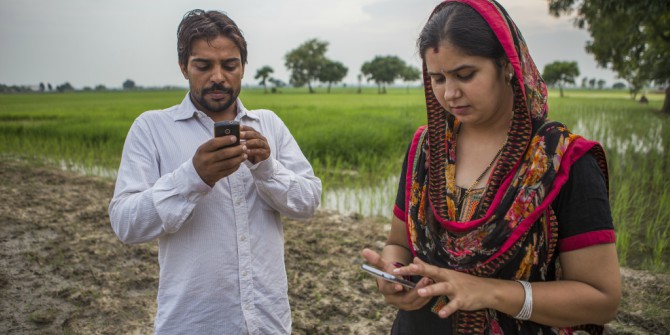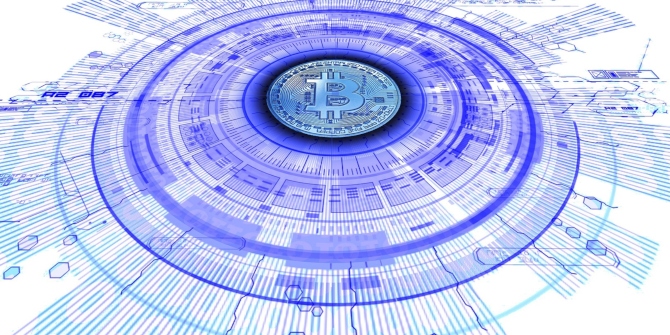
Although there is no single definition of ‘transhumanism’, the term broadly relates to the idea that the human species should radically transform itself as it has the physical environment through the use of advanced technology. Steve Fuller writes on the link between transhumanism and capitalism, and elaborates on what it would mean to be a person in such a world.
Capitalism is not normally seen as an especially ‘humanistic’ ideology. Yet central to the legal innovations that enabled the rise of capitalism in the early modern West was a doctrine of the person as a being who is free to exchange goods and services. In the eighteenth century, this freedom was characterised as an ‘inalienable right’, which is to say, not transferable to another either by choice or under duress.
Thus, a strong normative distinction between people and property was institutionalised, which had not existed in slave or feudal societies. The sting of the Marxist critique of capitalism comes from observing that this distinction is not upheld in practice. Instead a supposedly inalienable right of the person becomes a site for exploitation, as asymmetrical power relations in the marketplace reduces human labour to inhuman capital inputs.
Transhumanism challenges the sense of humanity’s ontological stability shared by capitalists and socialists – which has rendered exploitation such a normatively charged issue in the modern era. To be sure, over the past 150 years the potential for exploitation has been mitigated by laws that circumscribe and regulate the role of work in life: While one may need to sell one’s labour to make a living, the buyer doesn’t have unconditional control over the seller’s life. In this context, welfare state legislation has operated as a safeguard against the realisation of Marx’s worst fears.
However, whatever sense of humanism has been presumed by such policies is being gradually eroded by the information-based mode of production that characterises what Jean-Francois Lyotard originally called the ‘postmodern condition’. In particular, as computers mediate both the work and non-work aspects of life, many of the phenomenological markers that created distance between the ‘worlds’ of work and non-work are rapidly disappearing.
An obvious case in point is the idea of ‘working from home’. People who operate this way typically shift back and forth between performing work and non-work activities on screen in an open-ended and relatively unstructured day. Meanwhile, all the data registered in these activities are gathered by information providers (e.g. Google, Facebook, Amazon), who then analyse and consolidate them for resale to private and public sector clients.
Is this exploitation? The answer is not so clear. The information providers offer a platform that is free at the point of use, enabling users to produce and consume data indefinitely. Of course, such platforms are the source of both intense frustration and endless satisfaction for users, but the phenomenology of these experiences is not necessarily what one might expect of people in a state of ‘exploitation’. On the contrary, there is reason to think that people increasingly locate ‘meaning’ in their lives in some cyber-projection (‘avatar’) of themselves, notwithstanding the third-party ownership of the platform hosting the cyber-projection.
Transhumanism is strongly implicated in this shift in the scope of one’s ‘personhood’. My own sense of identity may be tied to my having begun life as a member of Homo sapiens at a certain time and place. But that is largely a modern narrative convention, which is tied to what John Locke originally dubbed a ‘forensic’ sense of the person, which is enshrined in modern law – namely, the physical source of an action for whose effects the source is then accountable. Of course, there is scope for this individual to both extend and transfer his or her powers. Thus, the modern period has witnessed an expansion in the remit of corporate law and inheritance law. However, transhumanism takes the process of ‘extending’ and ‘transferring’ the powers of the person to a new level.
On the one hand, in the case of extension, the person might incorporate genetically or prosthetically, with the intent of conferring new powers on the original physical individual, as opposed to simply merging the interests of that individual with those of other individuals in the sorts of business arrangements we normally call ‘corporations’. On the other hand, in the case of transfer, the person might do more than simply bequeath various assets to already existing individuals and institutions – say, in a will which comes into force upon one’s death. Rather, the person might in his or her own lifetime invest energy and income in support of virtual agents, ‘second lives’, with the effect of turning one’s physical self into a platform for launching the more meaningful cyber-selves.
The state of humanity in such a state of transhumanised capitalism – ‘Capitalism 2.0’, if you will – is one of morphological freedom, as transhumanists themselves put it: It is the freedom not only to do what you want but also to be what you want. It is worth observing that this sense of freedom violates a key metaphysical assumption shared by liberals and socialists, namely, that humans are rough natural equals, not in the sense that everyone is naturally the same but that everyone has roughly the same mix of assets and liabilities, which in turn justifies a harmonious division of labour in society. The violation of this assumption implies that whatever problems of social justice relating to material inequality have emerged over the history of capitalism are potentially amplified by transhumanism, as the prospect of morphological freedom explodes stopgap liberal intuitions about the ‘natural equality’ of humans.
A reading course on what the ‘meaning of life’ might look like in such a world would do well to focus on the work of Robert Nozick and Derek Parfit, both of whom in somewhat different ways stretched philosophical thinking about the conditions for personal identity to capture the transhumanist prospects suggested above.
♣♣♣
Notes:
- This blog post appeared originally on LSE Europp.
- Steve Fuller recently gave a wide-ranging talk on ‘Transhumanism and the Future of Capitalism’ to the University of Birmingham’s Centre for Contemporary Philosophy of Technology. See the video here.
- The post gives the views of its authors, not the position of LSE Business Review or the London School of Economics.
- Featured image credit: Michael Coghlan (CC BY-SA 2.0)
- Before commenting, please read our Comment Policy.
 Steve Fuller holds the Auguste Comte Chair in Social Epistemology in the Department of Sociology at the University of Warwick.
Steve Fuller holds the Auguste Comte Chair in Social Epistemology in the Department of Sociology at the University of Warwick.





